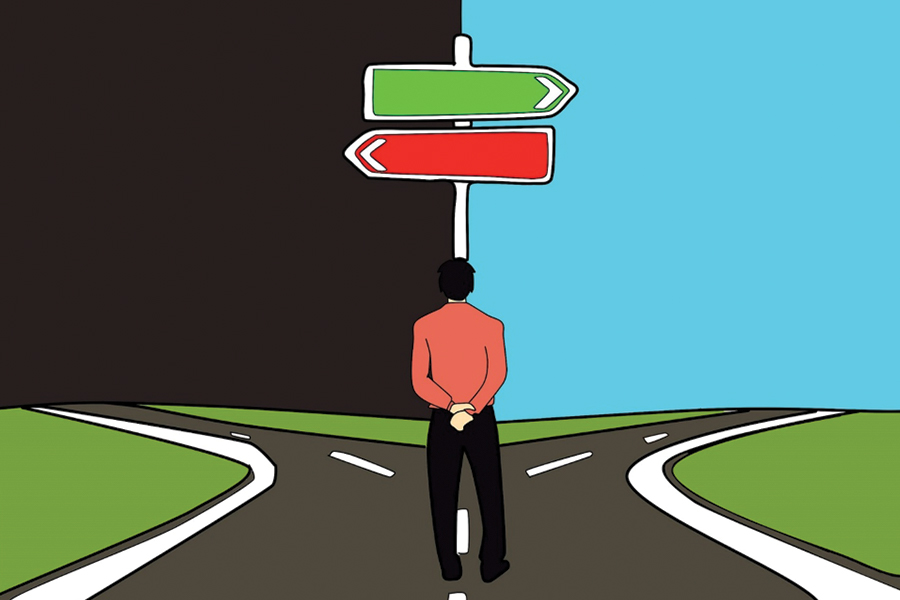
How You Make Decisions Can Affect Your Patience
Media Contact: Shilo Rea
Would you rather have $5 today or $10 in a month? Eat a donut or an apple? Save for retirement or buy something new?
When making these choices, you're weighing two kinds of options: a short-term reward that is worse for your longer-term outcomes, or a less immediately satisfying reward that's better for your future.
But what if you could be more patient? New research from Carnegie Mellon University, Temple University and Columbia University found that how you approach making these decisions can impact your ability to be patient and choose the longer-term option.
Published in the Proceedings of the National Academy of Sciences, study participants chose between receiving smaller amounts of money delivered sooner (such as $44.80 in two weeks) or larger amounts of money delivered later (such as $51.50 in six weeks). Using mouse-tracking software, the research team tracked which pieces of information participants looked at as they hovered over the options.
About 50 percent of the participants took in all the information for the first option—the amount of money and time it would be delivered—and then all the information for the second option. The other half compared features between the options—first comparing the amounts of money, then comparing the delivery dates.
“What we found fascinating was not only were there these two groups of people with respect to their strategies, but they also differed in patience. People who were comparing between options were much more patient overall than those who were integrating the features of options,” said Crystal Reeck, assistant professor in the Department of Marketing and Supply Chain Management at Temple’s Fox School and the associate director of Temple University's Center for Neural Decision Making.
This increased patience when comparatively searching held true even when the research team manipulated the participants' strategies. The team added a one-second delay in accessing information when hovering over a box on the screen, so that participants were subtly encouraged to search either comparatively (dollar vs. dollar, then time vs. time) or integratively (dollar and time vs. dollar and time).
“This change was so subtle that most people didn’t realize anything was different, yet it changed almost instantly how people made their choice,” said Eric Johnson, the Norman Eig Professor of Business and director of the Center for the Decision Sciences at Columbia Business School. “More importantly, it changed what they chose: If they were encouraged to compare the options, they became more patient.”
That manipulation, however, altered their choices. Participants who were assigned to search comparatively were more patient than those who were assigned to search integratively, regardless of how they searched before.
The results of the study indicate people are more likely to practice patience when the trade-off in value is easy to compare between options.
Daniel Wall, a Ph.D. student in social and decision sciences at CMU, said, “I’m a pretty impatient person. This research has helped me reframe the self-control decisions I struggle with as comparisons between salient options. My mom is always trying to give me junk food, but when I compare a bag of Peppermint Patties to not fitting into my jeans, it’s easier to abstain.”
This research is one example of Carnegie Mellon’s approach to behavioral economics that uses a distinct fusion of economics and psychology to tackle some of the most complicated and costly problems.